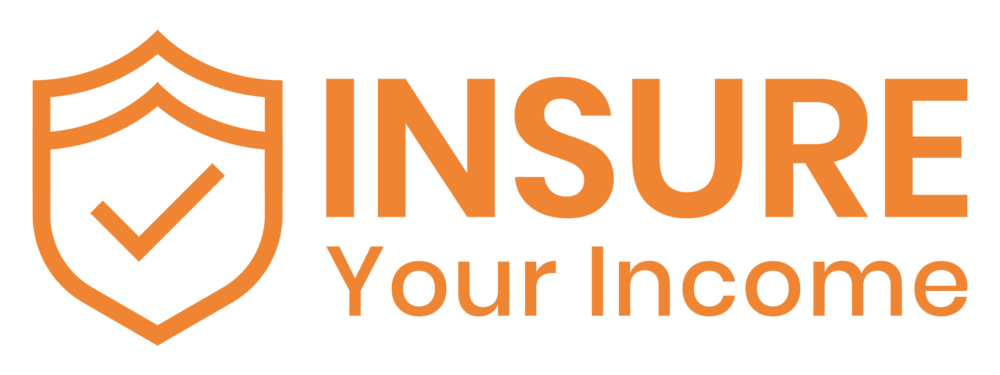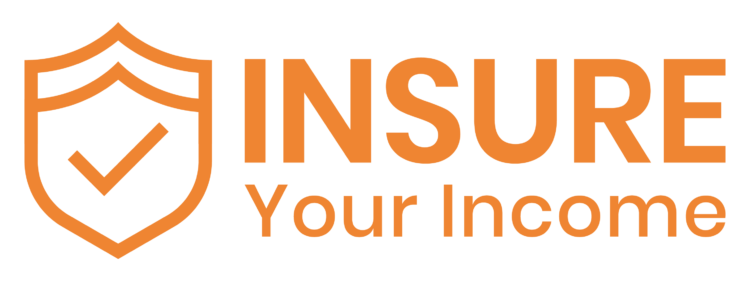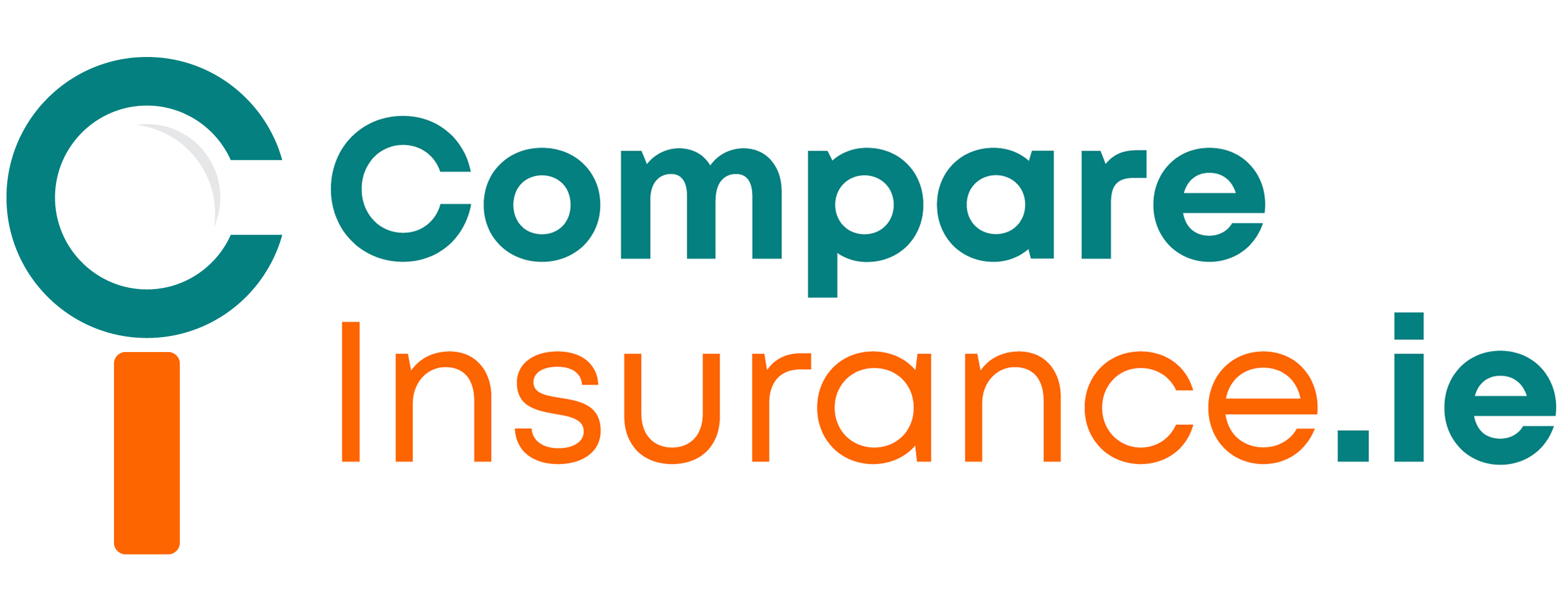Income insurance protects your income if you unexpectedly can’t work due to injury or illness.
It’s an easy way to help protect your financial future, and ensure your lifestyle and family are protected in any event.

Can an Acupuncturist get income protection insurance?
Acupuncturists generally work within safe conditions. However, working with needles comes with a number of risks, including infection, wounds, and general pain. These risks are present for both the acupuncturist and the client, and acupuncturists could be subjected to a lawsuit in an extreme case of injury to a client. Acupuncturists can receive second-class income protection.
Status: mild risk- insurable
Can an Ambulance Controller get income protection insurance?
Ambulance controllers handle emergency calls and manage medical dispatch teams. Despite this being a highly stressful environment, ambulance control workers operate in safe work conditions. Ambulance controllers qualify for class 1 income insurance, to fully protect their income.
Status: low risk- insurable
Can Ambulance Crew get income protection insurance?
Ambulance crew members work on the frontline to treat patients. The ambulance crew faces a high number of environmental risks as they are exposed to medical hazards and dangerous and high-risk situations. Ambulance crews do not qualify for income protection due to the nature of their work.
Status: Declined- uninsurable
Can an Ambulance Driver get income protection insurance?
Ambulance drivers operate ambulances often at high speeds and in dangerous circumstances to have the best chance of helping a patient. Due to such high-risk roles, ambulance drivers are denied income protection.
Status: Declined- uninsurable
Can an Anesthetist get income protection insurance?
As specialist medical practitioners, anesthetists are integral to surgical processes. Despite working in stressful conditions using controlled medications, Anaesthesiology is deemed a safe occupation. Anesthetists qualify for class 1 insurance protection, covering their income up until 70 years of age.
Status: low risk- insurable
Can an Audiologist get income protection insurance?
Audiologists work in safe conditions, generally in private practice or hospitals to identify, assess and treat hearing disorders. Working professionals in audiology qualify for full insurance protection up until 70 years of age.
Status: low risk- insurable
Can a Cardiologist (surgeon) get income protection insurance?
Cardiologist surgeons are exposed to a number of on-the-job hazards. These hazards include blood-borne pathogens, sharp injuries, exposure to hazardous chemicals, and anesthetic gases. Cardiologist surgeons can receive class 2 income protection as their job role is deemed relatively unsafe. This protection covers workers until they are 65 years of age.
Status: mild risk- insurable
Can a Cardiologist (non-surgeon) get income protection insurance?
Cardiologists generally work in a safe and controlled environment within a hospital or private practice and thus face little to no risk in the workplace. Cardiologists who do not perform surgeries qualify for class 1 income protection, providing full protection until 70 years of age.
Status: low risk- insurable
Can a Chiropodist get income protection insurance?
Chiropodists work with a number of sharp tools and dangerous chemicals when treating patients’ feet. They are open to infection from blood-borne viruses and microbial dust (from calluses, corns, nails, etc.). Accounting for these risks, chiropodists qualify for second-class income protection.
Status: mild risk- insurable
Can a Chiropractor get income protection insurance?
Chiropractors encounter a number of health and safety hazards on the job, including chronic pain like arthritis and the potential to injure patients. Injuring patients could result in lawsuits and a threat to income. Chiropractors qualify for second-class income protection.
Status: mild risk- insurable
Can a Clinic nurse get income protection insurance?
Clinic nurses experience an often high-level of risks at work, dealing with sometimes unhappy and abusive patients, being exposed to harmful chemicals and radiation on a daily basis, as well as blood-borne diseases and exposure to injuries from medical tools like needles. To account for these risks, clinic nurses qualify for third-class income protection.
Status: moderate risk- insurable
Can a Clinical nurse manager (no manual work) (to 65) get income protection insurance?
Clinical nurse managers who do not engage in manual work are less exposed to risks and injury than those who partake in manual work. Monitoring work and managing staff are generally safe but managers are still open to harm from patients and a number of other workplace hazards such as slip, trip, and fall accidents which are more common within clinic settings. Due to these risks, clinic nurse managers qualify for second-class income insurance.
Status: mild risk- insurable
Can a Dental Assistant (to 60) get income protection insurance?
Dental assistants qualify for second-class protection up until the age of 60. Dental assistants work with a number of dangerous gasses and chemicals on a daily basis, as well as potentially dangerous instruments such as needles and scalpels. Dental assistants are often exposed to radiation from x-ray machines which can pose a serious risk to health.
Status: mild risk- insurable
Can a Dental Hygienist (to 60) get income protection insurance?
Dental hygienists can be exposed to contaminants, infection, radiation, minor burns, and cuts. Because of the health and safety risks involved in dental hygiene work, workers qualify for second-class protection up until 60 years of age.
Status: mild risk- insurable
Can a Dental Nurse (to 60) get income protection insurance?
Dental nurses are more prone to musculoskeletal disorders. They are also open to viral infections, radiation, and injury from dental equipment. Dental nurses are also somewhat liable for the health and safety of patients at the time of their care and could potentially face a lawsuit or claim if harm is caused to a patient. To account for these risks, dental nurses qualify for second-class income protection.
Status: mild risk- insurable
Can a Dental Technician (to 60) get income protection insurance?
Dental technicians encounter a number of health and safety hazards at work. They can acquire infections from dental prostheses that have not been properly sterilised. Technicians may experience hearing damage from loud machinery, health issues from chemicals such as phenols, quaternary ammonium, and silicosis (from exposure to silica) from grinding porcelain, casting, sandblasting, and a number of other tasks. To account for these risks, dental technicians qualify for second-class income protection, up until 60 years of age.
Status: mild risk- insurable
Can a Dentist (up to 60) get income protection insurance?
Radiation, injuries from drills and needles, slips, trips, and falls, exposure to blood-borne pathogens, exposure to heavy metals (vapourised mercury in metal fillings), and exposure to dangerous chemicals are just a few of the health and safety risks dentists encounter at work. Dentists are also liable for their patients within their care and can be held liable for damages in the case of an injury or accidental harm to the patients. To account for these risks, dentists qualify for second-class income protection, up until 60 years of age.
Status: mild risk- insurable
Can a Dietician get income protection insurance?
Dieticians work within safe conditions and work day-to-day generally within a clinic, hospital, or private practice. Generally working with patients one-to-one, dietitian are less open to infection and illness than other hospital workers. Due to the low level of risks involved in working as a dietitian, dietitian can avail of first-class income protection.
Status: low risk- insurable
Can a District nurse get income protection insurance?
District nurses generally provide care within the private homes of patients. Private homes are unregulated spaces, unlike clinics and hospitals that can contain their own unique health and safety hazards. Working with sick patients in general opens district nurses up to the possibility of infection and illness. To account for these risks, district nurses qualify for third-class income protection.
Status: moderate risk- insurable
Can a Doctor get income protection insurance?
Doctors can avail of first-class income insurance to protect their income as they generally face low risks on the job. Doctors are also highly trained when it comes to health and safety precautions.
Status: low risk- insurable
Can a Doctors practice nurse (to 65) get income protection insurance?
Doctors practice nurses can be insured on class two protection, up until 65 years of age. Doctors practice nurses engage in hands-on work with patients, exposing them to blood-borne diseases and a number of illnesses.
Status: mild risk- insurable
Can a General practitioner get income protection insurance?
General Practitioners qualify for fourth-class income insurance. Working with the general public and treating a vast amount of illnesses and diseases, GPs have a high risk of contracting health effects. GPs also work with a number of dangerous instruments, chemicals, and gasses that can have adverse health effects. GPs may also be held liable in the case of negligence.
Status: high risk- insurable
Can a Health Visitor get income protection insurance?
Health visitors face a number of risks on the job, on home visits, and in treating patients. Assessing children’s health on a day-to-day basis opens health visitors up to health risks from infection, viral diseases, and injuries from patients. There is an added risk for health visitors, as opposed to nurses and health workers within a hospital as they work within patients’ homes, which are unmonitored and could contain added health and safety hazards. Considering these risks, health visitors qualify for second-class protection, up until 55 years of age.
Status: mild risk- insurable
Can a Hospital Orderly get income protection insurance?
Hospital orderlies are exposed to a high number of health and safety hazards on the job. Having direct contact with patients means that hospital orderlies may be exposed to infectious diseases. Orderlies may also be exposed to radiation or anesthetic gases, causing harm to their health. Hospital orderlies are also prone to musculoskeletal pain and injury from heavy lifting, escorting patients, moving beds, and partaking in physically taxing work. Considering these risks, hospital orderlies do not qualify for income protection insurance.
Status: Declined- uninsurable
Can Hospital Porters get income protection insurance?
Hospital porters are prone to injury and illness. Moving patients within a hospital open porters up to infection from direct contact with ill patients. Porters are also prone to back strain, arthritis, slip, trip, and fall accidents, escorting and moving patients. Considering the high level of risk involved in the job, hospital porters do not qualify for income protection.
Status: Declined- uninsurable
Can a Midwife get income protection insurance?
Midwives qualify for fourth-class income protection insurance. Midwives encounter a high number of occupational hazards. Midwives have a high chance of transmitting infection from patients, increases exposure to slip, trip, and fall accidents, and to harmful chemicals and equipment. Considering this level of risk, midwives qualify for fourth-class income protection.
Status: high risk- insurable
Can a Nurse get income protection insurance?
Nurses come in contact with a large number of occupational hazards. Needle injuries, exposure to blood-borne diseases, dangerous chemicals, and radiation are commonplace for nurses within their place of work. Considering these risks, nurses qualify for third-class income protection insurance.
Status: moderate risk- insurable
Can a Nurses Aide get income protection insurance?
Nursing aides are often exposed to health and safety hazards on the job. Working within a clinic or hospital naturally increases exposure to infection and illness. Nurses’ aides are also prone to cuts and lacerations from needles, slips, trip and fall accidents and harassment (sometimes violent) from patients. To account for the occupational risks nurse aides are exposed to, those in the profession qualify for third-class income protection insurance.
Status: moderate risk- insurable
Can an Occupational Therapist get income protection insurance?
Occupational therapy can be physically demanding for both the patient and the therapist. Many occupational therapists engage in physical activity on a daily basis, increasing the risk of injuries such as strains, slips, trips, and falls, and broken bones. Accounting for these risks, occupational therapists qualify for second-class income protection insurance.
Status: mild risk- insurable
Can an Optician get income protection insurance?
Opticians qualify for the highest level of income protection insurance. Opticians work in safe working conditions, and in generally low-stress conditions. Considering the low level of risk involved in optometry, opticians qualify for first-class income protection insurance.
Status: low risk- insurable
Can an Optometrist get income protection insurance?
Optometrists work in generally safe conditions. Unlike other healthcare professionals, optometrists do not come in contact with many dangerous chemicals or substances and are less exposed to infection and illness. Considering the low level of risk involved in optometry, those in the profession qualify for first-class income protection.
Status: low risk- insurable
Can an Orthodontist get income protection insurance?
Orthodontists encounter a number of health and safety hazards at work. Radiation, exposure to loud noise (leading to hearing damage), working with sharp and dangerous tools, and exposure to dangerous gasses and chemicals are all common hazards within an orthodontist’s practice. While there are a large number of risks that come with orthodontics, it is a much safer profession than many other healthcare careers, and orthodontists use protective gear to protect them against these hazards. Considering the level of risk involved in orthodontics, orthodontists qualify for second-class income protection insurance up until 60 years of age.
Status: mild risk- insurable
Can an Osteopath get income protection insurance?
Not involving the use of chemicals or drugs, osteopathy tends to be safer than other forms of physical therapy. However, osteopaths are prone to musculoskeletal problems from awkward and static postures, repetitive work, and heavy lifting. Considering the level of risk involved, osteopaths qualify for second-class income protection.
Status: mild risk- insurable
Can Physiotherapists get income protection insurance?
Physiotherapists encounter a number of occupational hazards. These hazards include exposure to radiation, pain, and injury from static and repetitive movements, and rashes and fungal infections from hydrotherapy. Accounting for these risks, physiotherapists qualify for second-class income protection insurance.
Status: mild risk- insurable
Can a Practice Nurse get income protection insurance?
Practice nurses are exposed to a number of occupational hazards within a GP practice. These hazards include exposure to blood-borne diseases, injury from needles and sharp tools, physical injury from moving patients and heavy lifting, radiation, and harmful chemicals from medications. Considering the high level of risk involved in nursing, practice nurses qualify for third-class income protection.
Status: moderate risk- insurable
Can Psychiatric nurses get income protection insurance?
Psychiatric nurses are exposed to a number of health and safety hazards at work. Psychiatric nurses are exposed to dangerous chemicals and gasses, harassment from patients, exposure to slip, trip, and fall accidents, and mental strain from high-stress working conditions. Considering the level of risk involved in psychiatric nursing, those in the profession qualify for third-class income protection.
Status: moderate risk- insurable
Can Psychiatrists get income protection insurance?
Psychiatry is less physical than many other healthcare professions. There is little skin-to-skin contact and less chance of contracting infections. Considering the low level of risks involved in psychiatry, psychiatrists qualify for first-class income protection.
Status: low risk- insurable
Can a Psychotherapist get income protection insurance?
Psychotherapists generally work in safe conditions within a private practice or in a clinic. Psychotherapy is non-invasive and therapists are less open to infection than other healthcare workers. Psychotherapy is sedentary for the most part and therefore poses little risk to the health and safety of those in the profession. Considering these factors, psychotherapists qualify for first-class income protection.
Status: low risk- insurable
Can Radiographers get income protection insurance?
Radiographers conduct x-rays and medical scans using radiation. While working with radiation can be dangerous, radiographers take a number of harm reduction measures to avoid or minimise contact with radiation. Radiographers also make little direct contact with patients, limiting the chances of infection or illness. Considering the low level of risks involved, radiographers qualify for the highest level of income protection insurance. (First-class protection).
Status: low risk- insurable
Can Radiologists get income protection insurance?
Radiologists generally work outside of the x-ray room, analysing and interpreting imaging scans. As they make little contact with patients and generally work within safe conditions, radiologists qualify for first-class income protection.
Status: low risk- insurable
Can a Speech Therapist get income protection insurance?
Speech therapists often engage in close contact with patients such as oral exercises, including facial massages and various mouth, jaw, and tongue exercises. This kind of direct oral contact opens speech therapists up to contracting infection. Considering these risks, speech therapists qualify for second-class income protection insurance.
Status: mild risk- insurable
Can a Surgeon get income protection insurance?
Surgeons are exposed to a number of occupational hazards. Major hazards include exposure to blood-borne pathogens, anesthetic gasses, laser plumes, and cuts from sharp equipment. However, surgeons use PPE (personal protective equipment) and take a number of harm reduction measures to protect themselves. Considering the risks surgeons are exposed to, surgeons qualify for second-class income protection.
Status: mild risk- insurable
Can a Veterinary Assistant get income protection insurance?
Veterinary assistants are exposed to a number of occupational hazards while working with and treating animals. Zoonotic diseases (Lyme disease, chlamydia), animal bites, and exposure to radiation and anaesthetic gases are some of the hazards faced by veterinary assistants at work. Considering the risks involved, veterinary assistants qualify for second-class income protection.
Status: mild risk- insurable
Can a Veterinary Surgeon get income protection insurance?
Veterinary surgeons are exposed to a number of health and safety hazards at work. These hazards include exposure to ionising radiation, anaesthetic drugs, and zoonotic diseases. However, veterinary surgeons can take a number of preventative measures to reduce these risks such as protective gear and sterilising equipment. Considering the level of risk involved, veterinary surgeons qualify for second-class income protection insurance.
Status: mild risk- insurable




